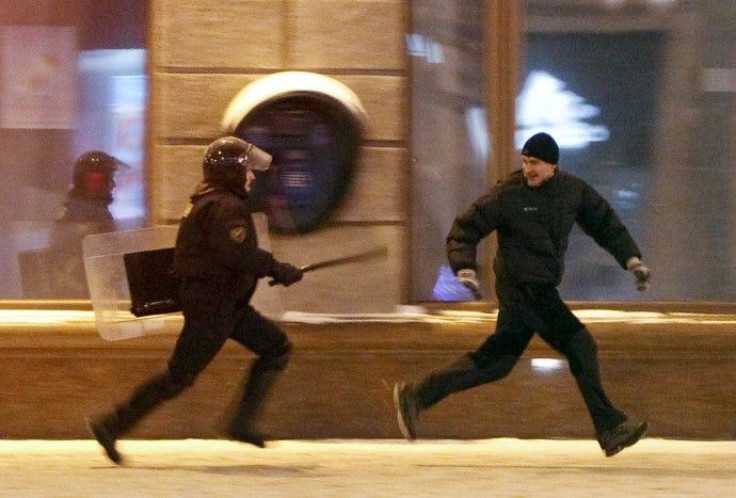Belarus polls 'seriously flawed': International observers

International observers slammed the Belarussian President Alexander Lukashenko, alleging that fraud and violence were widespread in Sunday's polls. They maintained that the results were 'seriously flawed' and at least six of the nine presidential candidates were arrested and reportedly beaten up by the police.
The results declared by the country's Central Election Commission stated that Lukashenko was voted in for his fourth consecutive term with almost 80 per cent of the total votes. More than 900 international and 18,000 local observers were in place to monitor the elections.
Opposition supporters however, launched protests in the capital Minsk and the ensuing police crackdown led to over 600 arrests on Monday. Rival candidate, Vladimir Neklyayev, was also reportedly roughed up by the government forces and was rushed to nearby hospital after sustaining injuries.
Observers from the Organization for Security and Co-operation in Europe (OSCE) confirmed that the election night was marred by the detention of most presidential candidates and hundreds of activists, journalists and civil society representatives. It added that almost half of vote counts monitored were bad or very bad.
This election failed to give Belarus the new start it needed. The counting process lacked transparency, said Tony Lloyd who leads the short-term OSCE observer mission and heads the delegation of the OSCE PA.
Sunday's poll witnessed participation from 65.2 per cent of the electorate. The Belarus Central Election Commission declared the elections as valid and maintained no violations were observed during the polls.
Lukashenko, the 56-year-old President, has ruled the ex-Soviet republic that serves as a buffer between Russia and the NATO, since 1994. The country is also a transit route for Russian gas exports to the rest of Europe. He won over 80 percent of the vote in previous polls held in 2006 and secured landslides in both the previous elections. US officials have often dubbed him as Europe's 'last dictator'.
Yet, Lukashenko managed to seek closer ties with the European Union, snubbing Russia's influence in the region. The leader angered Moscow after he blatantly refused to recognize Abkhazia and South Ossetia, the breakaway regions of Georgia, as independent states following Russia's war with Georgia in 2008. He also offered refuge to Kyrgyzstan's ousted President Kurmanbek Bakiyev, against Kremlin's wishes.
Moscow, which was enraged by his policies, drastically cut gas supplies to the country over the past few months. However, officials in Minsk maintained that he had received blessing from the Kremlin in the run up to the polls. However Local media reports in Russia maintain that the violent crackdown of opposition supporters following the election could strain the relations between both countries.
© Copyright IBTimes 2024. All rights reserved.











